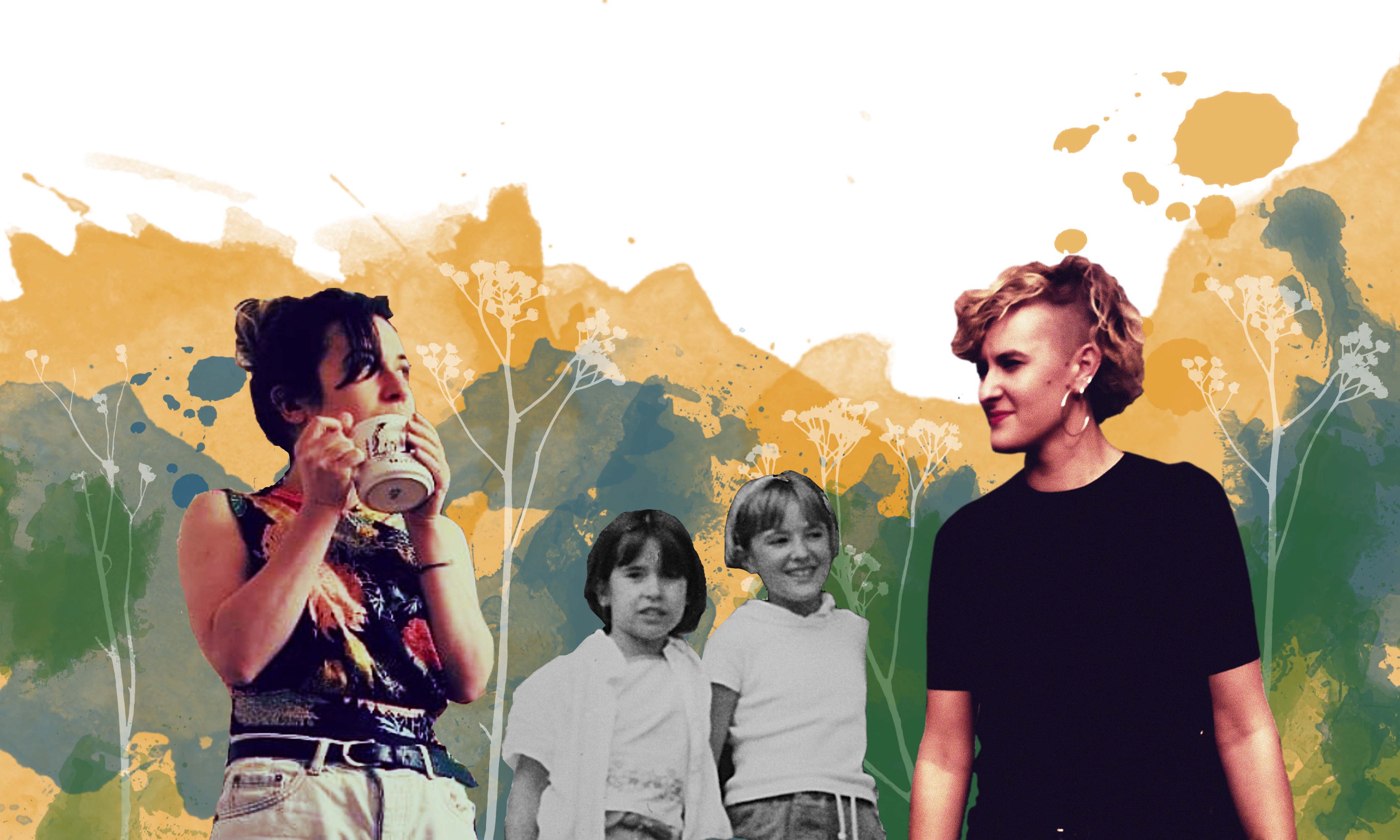How did they create the Loregorri project?
Maddalen Aristegi Sánchez: I did the psychology degree in Argentina and when I lived there I developed a menstruation project. So I started doing courses, and I learned a lot about it. When I returned to Euskal Herria, I told Ane that he wanted to work for the month in Basque and asked him if he wanted to be part of the project. Because Ane and I know about school and we've always had a good relationship.
Three years have passed since the beginning of the project. How has the road been?
Ane Narbarte Lasa: Loregorri was born in 2020, in a time of confinement, making the road difficult. However, the project has been very welcome. Once we got out of lockdown, we realized that people wanted these courses. We work for this lack, because we see that it is necessary to talk about menstruation and dirt. Moreover, the project started in one way and has been changing according to needs.
S.M.A. : As for the courses, because of the situation we were in, we could not meet at first. We were later on kissing, but we weren't entirely comfortable. We always say that Loregorri has his own rhythm and that we adapt to that rhythm.
You organized in Getxo the workshop “Bleaching our bulvas”. Specifically, what do you work in this workshop?
S.M.A. : The aim of this course is to put on the table what has come from society. Many massacres carried out in the name of science continue to affect our bodies. Our intention is to realize how many colonizers we have in menstrual bodies and the knowledge we have of our bodies and others. We're trying to analyze where shame and fear come from, and collectivize each other.
A.N.L. : In the end, from that exchange that occurs in the workshops we realize that everything is related. The experiences coming out of the interior influence the exterior and the setback. We approach the dirt of the parrot and menstruation from a "bio-psycho-socio-environmental" perspective. That is, we take into account the psychological, biological, social and environmental aspects of menstruation and dirt.
To whom are these workshops directed?
A.N.L. : They are directed to menstrual bodies. There are no specific ages, but young people have appeared more in workshops aimed specifically at them.
S.M.A. : We have a workshop aimed especially at parents or guardians. It's true, mothers usually come, but our gender is menstrual bodies, we make that clear.
What is the menstrual body for you?
S.M.A. : They are cyclical, cyclical and cyclical bodies for us. We like the word menstrual body not to catalog all people from the imaginary of women. Because there are many bodies that menstruate and are not defined as women, while there are many women who do not have menstruation.
And do non-menstrual bodies also participate in your project?
A.N.L. : In these workshops, aimed at tutors, teachers and parents, non-menstrual bodies also appear. In these workshops we work on how to accompany and act in these cases.
Besides the workshops, you have the shop. What products do they sell?
A.N.L. : We currently sell eco-friendly compresses. We make them, and that gives us the freedom to decide the cloths and designs that we want. At the beginning of the project we had a bag, but at the end we put it aside.
S.M.A. : We sell ecological compresses because we saw that the body was a way to be present in the Loregorri project. Furthermore, insofar as we believe in the circular and ecological economy, we intend to reduce consumption and waste generation. An ecological compress lasts five years, so our sale has a special rhythm.
What is the rule for you?
A.N.L. : I had a very bad time with the rule because in my youth I had sorrows of Criston. But today the rule is for me health. On the one hand, physical health, because for me it is a cleaning process, and on the other hand, psychic health. So for me, the rule is a friend today. And more than menstruation, dirt. Understanding how my cycle works has been a way to get to know me. And that's linked to self-recognition, acceptance of the phases as they come and your understanding.
S.M.A. : Health has also been my first word. I think a rule is the indicator that my dirt is working. I'm clear that menstruation is a phase of the menstrual cycle, and it's fantastic to find myself in all phases of the cycle. But I like to especially enjoy the menstrual phase. I take the opportunity to listen to myself when the pain comes and I understand it's time to stop. So I would define menstruation as a moment to take care of myself and allow myself.
What information was missing in your youth about the menstrual and menstrual cycle?
A.N.L. : In my house, for example, the cycle has never been worked, and, as I said, that information has served me a great deal. I therefore feel the need to work dirt with young people.
S.M.A. : I think the sex education we receive has been very poor. We received more than sexual reproductive education. After all, they explained the rule to us as a way not to get pregnant.
Do you claim that today the rule is a taboo?
S.M.A. I think so. An example of this is the law passed last year in the Spanish State that allows the right to leave work for menstruation. There is no other specific reduction stating, for example, that in case of headache or kidney pain you are entitled to sick leave. It's understood. Why is the rule not the same? This peculiarity of the law shows that the rule remains taboo.

